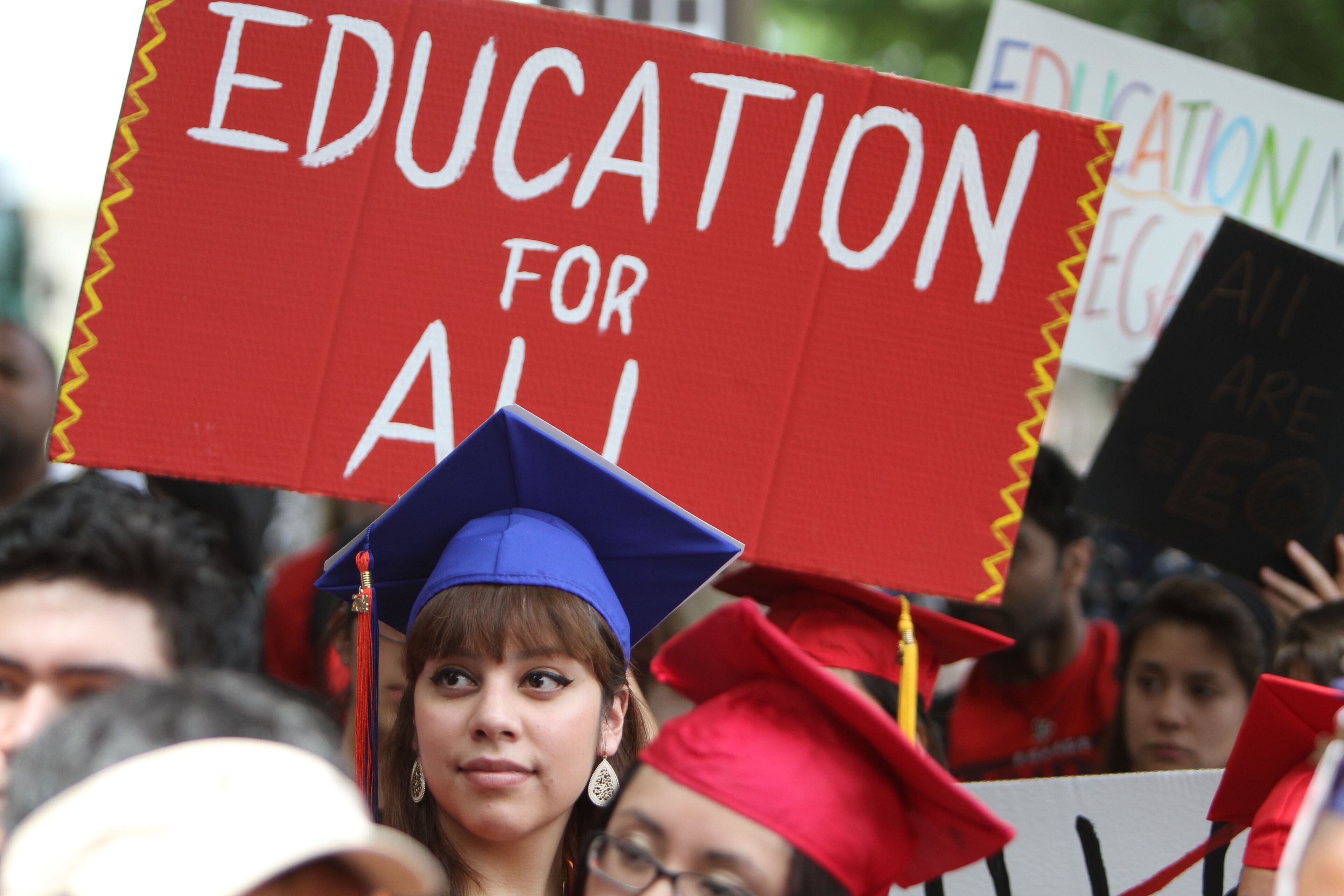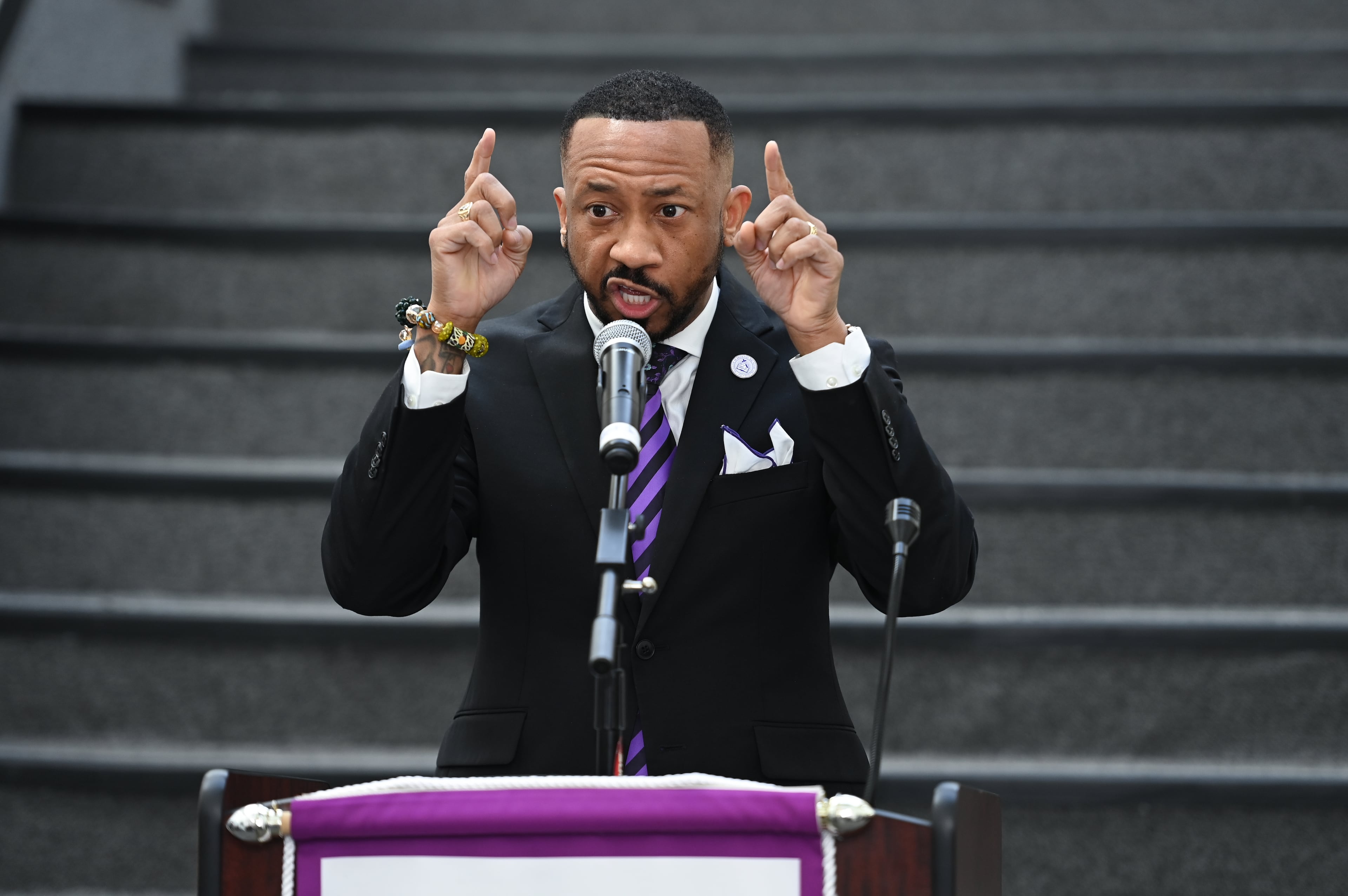Can Biden convert his education ideas into policy?

Joe Biden made many promises to improve education on the campaign trail, from investing $50 billion in training programs that would include community colleges and universities to signing legislation aimed at prevention mass shootings in the nation’s schools.
So what can he get done?
Many of the proposals, such as tripling funding for schools with a high percentage of students from low-income families, are expensive. Biden has talked about rolling back corporate tax cuts, which may pay for some of his more expensive plans, many of which involve more resources for public schools.
Meanwhile, the nation is in the midst of an economic downturn and a global health pandemic. The Trump administration and Congress failed to get a stimulus package passed before the election. One of Biden’s early tasks would be to work out a deal with Congress that would include more emergency funding for schools and colleges.
“Georgia colleges received some aid in the CARES package this summer, but it was not enough — especially considering the 10% state budget cuts — and came with a lot of strings attached,” said Jennifer Lee, senior higher education policy analyst for the Georgia Budget & Policy Institute, an Atlanta-based nonprofit.
State lawmakers made Georgia public colleges and universities cut 10% from their budgets earlier this year as revenues tumbled because of the pandemic. Some have anticipated more cuts when the Legislature returns in January, but Gov. Brian Kemp has said across-the-board cuts unlikely.
Much of Biden’s early success is contingent on who’s in the U.S. Senate. Both Georgia seats are headed to Jan. 5 runoffs.

“It depends on the Senate,” said Dana Rickman, vice president of the Georgia Partnership for Excellence in Education, a policy research group.
Education policy leaders nationally have held meetings and workshops since the election to discuss what a Biden administration may mean for the nation’s schools.
In Georgia, experts believe there could be strong support among state lawmakers and business leaders for initiatives that enhance economic development in the state, such as Biden’s plans to raise teacher salaries and grants to colleges tied to workforce development.
“That will resonate in Georgia,” said Steve Dolinger, president of the Georgia Partnership for Excellence in Education. “You could get the chambers (of commerce) behind that because they know there’s big issues with workforce.”
Early childhood education initiatives would also have broad support in Georgia, Rickman says.

Biden has proposed some big-ticket ideas, such as making public colleges and universities tuition-free for students from families with annual incomes below $125,000. The median household income in Georgia is $55,679, according to U.S. Census Bureau data.
Fran Millar, a Republican former state lawmaker from Dunwoody who served as chair of the state Senate’s Higher Education committee, questions whether taxpayers will support such a proposal.
“When you pay Peter, you got to rob Paul,” he said. “Where’s the money going to come from?”
Millar is more supportive of modest amounts of needs-based aid, such as about $1,000 a semester, for students with financial need.
Biden could quickly impact education with policy changes through a new U.S. Secretary of Education. He wants to change how schools investigate and mete out discipline in sexual misconduct investigations. The Trump administration has focused on policies that emphasized the rights of the accused, saying the Obama administration went too far in the other direction.

Additionally, Biden has said he supports young immigrants, better known as Dreamers, who were brought to the United States by their parents as children. Biden posted a tweet on Election Day that “Dreamers are Americans — and it’s time we make it official.” He has proposed providing Dreamers two years of free tuition at community colleges. Biden’s wife, Jill, is a professor at Northern Virginia Community College who plans to continue teaching.
Georgians have some items on their wish list.
Lee is hopeful for tuition-free technical colleges, which is on Biden’s agenda. Georgia already offers tuition-free courses in more than a dozen high-demand careers, such as nursing, trucking and film.
University of West Georgia President Brendan Kelly said in a Zoom meeting with Atlanta Journal-Constitution reporters and editors Tuesday that college presidents will be looking for more federal funding to conduct research projects. He’s also hopeful Biden will find ways to reward colleges that help low-income students graduate.
---
Here are ten ideas Biden has proposed for education:
- Triple funding for Title I, the federal aid program for schools with a high percentage of students from low-income families, and require school districts to use the money to offer educators competitive salaries.
- Double the maximum Pell grant. About 108,000 University System of Georgia students — approximately 40% of its undergraduate students — received Pell grants last year. Pell grants are awarded to students whose annual household incomes are typically less than $60,000.
- Double the number of school psychologists, counselors, nurses, social workers, and other health professionals.
- Free tuition at community colleges for Dreamers, students brought here by their parents as children, and adults seeking new job skills.
- Include in federal infrastructure legislation funding to improve public school buildings, focusing first on addressing health risks.
- Invest $20 billion in infrastructure for Historically Black Colleges and Universities, Tribal Colleges And Universities and Minority Serving Institutions. Georgia has nine accredited HBCUs. Dalton State College in 2018 became the first Hispanic Serving Institution in the state.
- More money for special needs students. Biden says the federal government has underfunded the Individuals with Disabilities Education Act.
- Boost funding for agricultural research at land-grant universities. The University of Georgia and Fort Valley State University are among the land-grant universities in Georgia.
- Grants to school districts to create plans and implement strategies to diversify their schools.
- Offer incentives to states to help students — particularly low-income students, military veterans and single parents — pay for childcare, tutoring, textbooks and other expenses.



